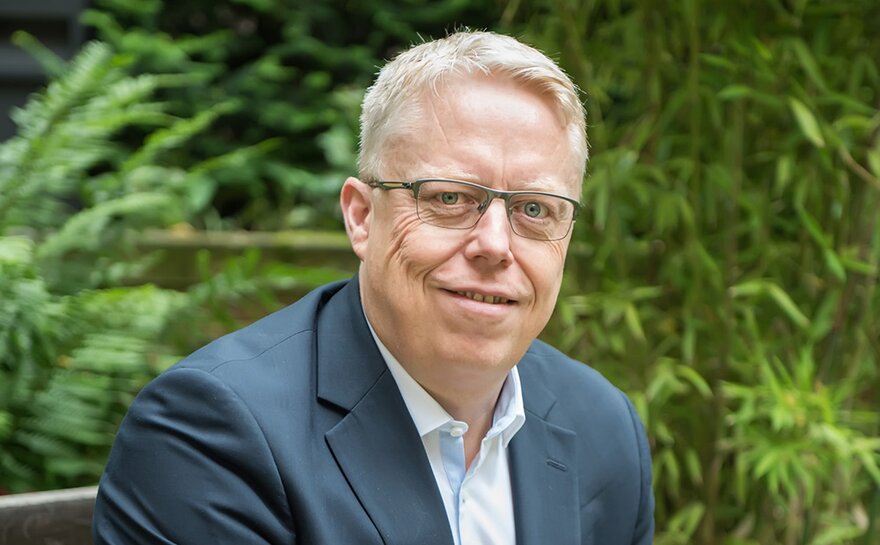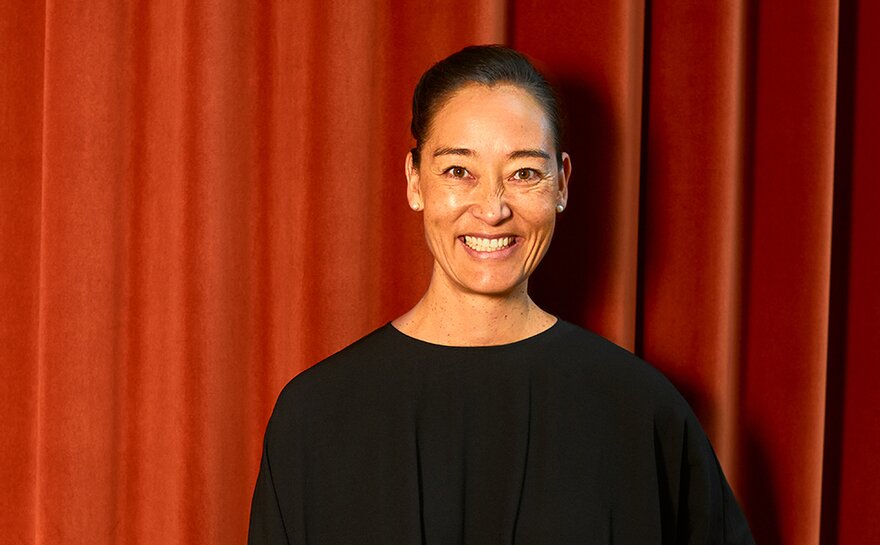For environmental, social and governance (ESG) goals to succeed, collaboration is key. In The Caterer's ESG Summit, panelists discussed how to ingrain sustainability across the business for optimal results
In recent years, there has been a sea change in how the sector thinks about sustainability. Mike Hanson, director of sustainable business at WSH – parent company of a number of well-known catering businesses, including BaxterStorey and Benugo – has been working in the ESG space for almost two decades.
"The pace of change over the past few years has been remarkable," he shared at The Caterer's ESG Summit, sponsored by Winnow. "In 2006 actually having an environmental policy was almost cutting edge. Corporate sustainability and corporate environmental management was not really a thing then."
Previously, when pitching for new client contracts, WSH noted that ESG consisted of just 1%-2% of the requirements within the total score for tenders. "Now, I've been involved in bids where it's 20%-25% of the total score. And it is incredible the amount of detail that those clients are requiring."
Quite literally ESG means business, which is why bringing suppliers on that journey is key. "The most important thing is to start the conversation. Tell them what you want and what your goals and strategies are and what you are looking for from them. It's recognising that we're all in it together," he says.
"Data is generally seen as king in terms of this. Because you've got to know where you are, to know where you are going. I completely agree that some data is better than no data, so don't let ‘perfect' get in the way of ‘good'."
David Jackson, director of marketing and public affairs at Winnow, a company that provides AI technology to help cut kitchen waste, agrees it can be difficult for operators to see the full picture. This is particularly true in understanding the extent of food waste. Currently, Winnow is installed in 2,000 locations across 77 countries and is used by a large number of companies, including Compass Group, Hilton and Ikea's food business.
"When we talk about ESG within the context of hospitality and foodservice, I think we need to try and reframe it from something which is costly or detracts from the overall proposition towards something that can augment and improve the customer experience and also deliver cost efficiencies," he says.
"Our data shows that somewhere between 4%-12% of the food in a commercial kitchen ends up in the bin. And that's not because chefs are bad at their job or that they want to throw food away, it's often because we are asking our culinary [staff] to make complex forecasting decisions in often stressful environments with imperfect information."
Winnow's technology is designed to address this data gap by pin-pointing areas of food waste. He cites an example of working with Hilton to reduce waste from its breakfast buffet as part of its Green Breakfast campaign. The team found that breads and pastries were a significant proportion of the wasted food on guest plates at breakfast, so Hilton's pastry chefs reduced the size of items such as croissants and rolls. Overall the campaign successfully reduced food waste by over 60% in four months. "With insights like that, there's obvious cost savings: you're not overfilling your customer, and they will probably order a dessert. So, you make more money and everybody wins – including the environment."
Communication is key in your ESG journey
Recognising suppliers are at different stages of their ESG journey is crucial to building a collaborative roadmap that everyone can work towards, says Aoife Wycherley, head of supply chain at Sodexo UK & Ireland.
"Right now, when it comes to carbon and net zero, we are all learning together. Nobody has a magic wand for this," she says. Sodexo has created a mentoring programme to help suppliers align with its ESG targets, and has also given small businesses a two-year grace period to get up to speed.
So far that process has been very positive. "The difficult conversations were more: ‘I've no idea how to do this'," she says. "And that's where we came up with the mentoring programme… Because we have experts in our business that could support [our suppliers]."
Even before these processes were formalised, Sodexo's partners already shared similar environmental commitments. "As a company, we've always been very ethical about sourcing and we were never very price-driven, so net zero didn't make us decide who our partners were. We made that decision previously, based on similar ethos, morals and values. Thankfully, we haven't had any ‘get on the bus, or off the bus' conversations so far."
Christina Ronsyn is managing director of Eat Social, a new entrant into the B&I market that opened last year. When it comes to working with clients on their ESG goals, she says being a small operator can help, as they're able to highlight their agility to adapt to any practices. "We benefit from our size. And we have a bit of an easier ride than some of the larger organisations," she says.
That is also true when working with the food supply chain. As a new business, Eat Social is in a position to bake ESG requirements into the start of supplier relationships – rather than having to navigate legacy contracts.
"As part of our strategy, we're looking to work with regional, diverse and hyper-local businesses," says Ronsyn. "But also, the food story is quite compelling. Consumers want to know the farm to table [background], they want us to champion local food heroes and offer support and perhaps mentorship where we can to small businesses.
"[We're] keeping deliveries and travel time to a minimum, but we're also helping small businesses – as we grow, they grow, and we can move together. And because they're small, they're not able to produce the volumes that some of the bigger companies work with, but we're still in a position where we can work with them."
In today's landscape, ESG expertise is undoubtedly a valuable commodity – for large and small operators alike. Mike Hanson from WSH says the industry no longer sees caterers and hospitality professionals as simply providing a service and nothing else. "Clients are looking to us as a trusted partner and as an advisor and an expert," he says. "We all need to get to the same place, so let's get there together."
How to devise an ESG strategy
Clearly, there is an imperative for businesses to demonstrate their ESG commitments – but getting a strategy off the ground can sometimes feel overwhelming.
"We have an increasingly climate-concerned, and socially-aware society and workforce. They're also vastly more informed than they ever have been," says food sustainability consultant Stephanie Lykourgou. "That comes with significant pressure and opportunities for business – 69% of consumers are making purchasing decisions with sustainability in mind."
For anyone unsure where to start, Lykourgou has a four-step plan to help turn ESG ambitions into reality.
Step 1: Run a strategy session
Whether you're starting out or need to refocus, it's important to bring key stakeholders together for a guided discussion, she says.
The aim is to help establish a holistic overview of your sustainability performance, clarify your goals and identify your challenges and opportunities. Doing so should help establish a plan of action with "resilience-based" solutions.
Step 2: Debrief and plan
Next it's time to start compiling your debrief. This should contain everything you need to move forward on your ESG journey: a report on stakeholder feedback; clarification of your ambitions; a definition of your order of priorities; an ESG strategy outline; and a proposed plan of action for the next steps.
"I tend to say this should be the next smallest steps," says Lykourgou. "Everything should be bitesize, if we want to actually get it over the line. This document will be particularly useful for getting the ball rolling in terms of establishing the business case and the vision for the next tranche of work."
Step 3: Assess your impact
Conduct an impact assessment to understand the big picture. Use industry data and frameworks to get started, decide on a scope and approach, and factor in your own resilience through triple materiality – "it goes one step further and considers your business' resilience by contextualising the likely impacts of social and environmental issues on your business in the short, medium and long term – so you can strategise most effectively for what is on the horizon," she says. Ensuring stakeholders are still included and making a list of strategic recommendations also remain key.
Step 4: Create and report your strategy
At this point you'll have everything you need to pull together a well-informed, ambitious ESG strategy, says Lykourgou. "Make sure you are aligning it with international and industry frameworks to create clarity for your clients. [And] provide measurable targets with timelines."
Finally, it's time to share your strategy. "Be brave enough to risk falling short – it's OK if you do. If you meet every single element of your strategy, it might be that you weren't being ambitious enough. And if you are not meeting some of those targets, [discuss] why that is, because it's likely to be an industry challenge and we can overcome those together."












